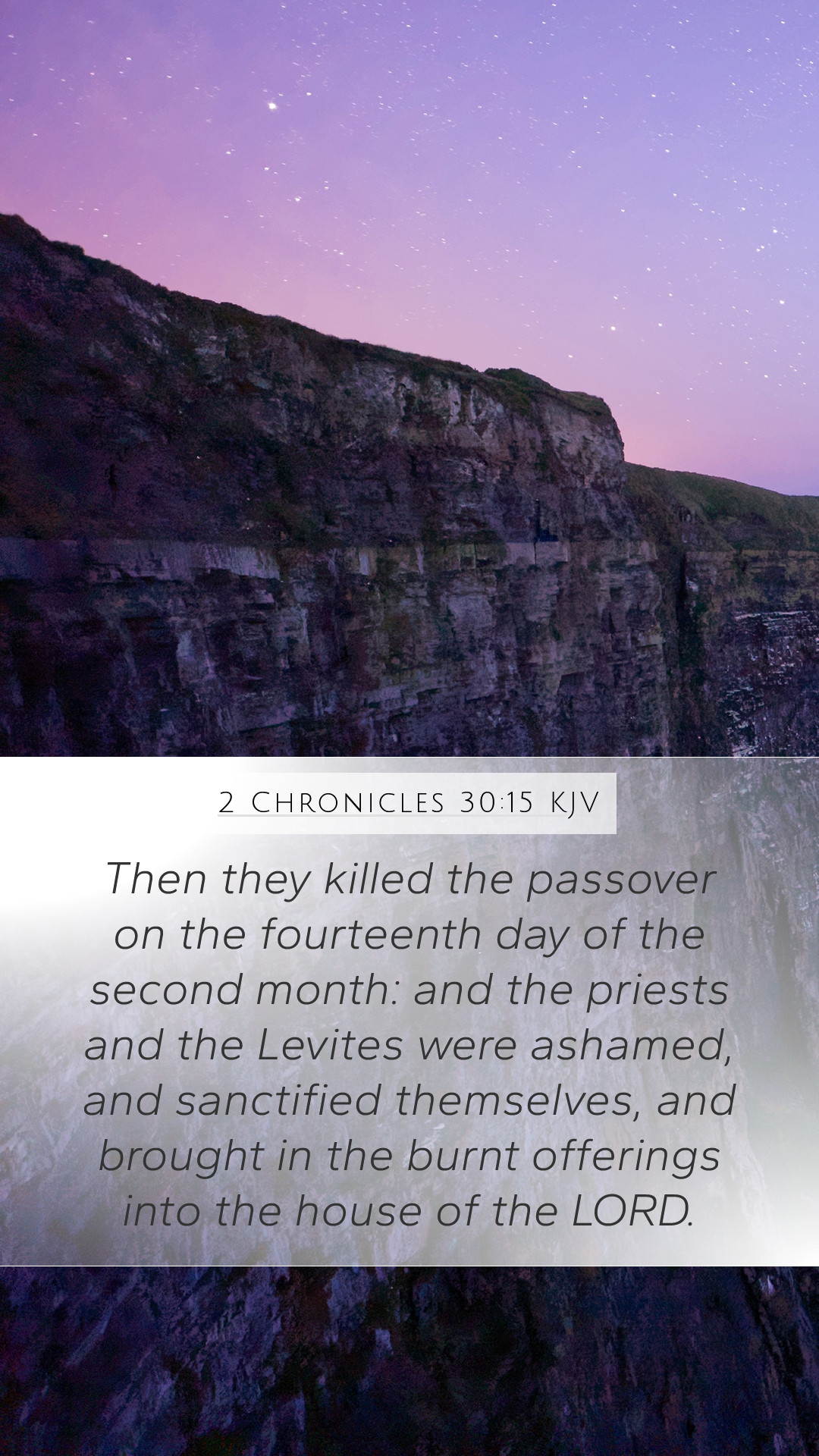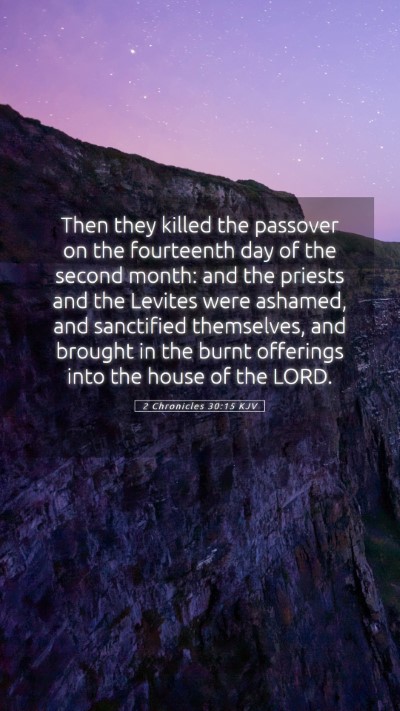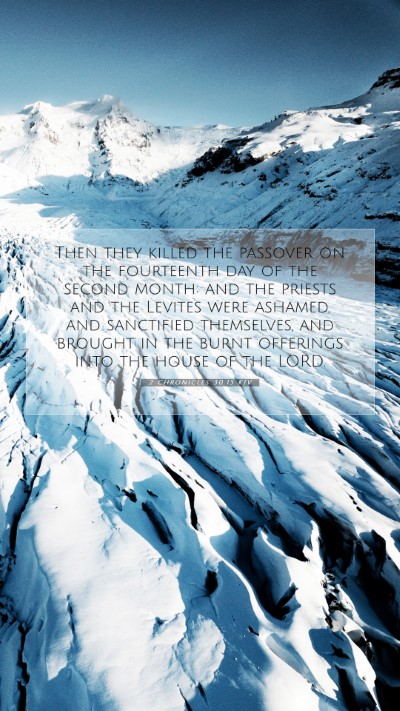2 Chronicles 30:15 Commentary and Meaning
Verse Text: "Then they killed the passover on the fourteenth day of the second month, and the priests and the Levites were ashamed, and sanctified themselves, and brought in the burnt offerings into the house of the Lord."
Overview
The verse from 2 Chronicles 30:15 captures a significant moment in Israel's history during King Hezekiah's reign. It highlights a collective return to the faithful observance of the Passover, a crucial event in the Israelite tradition that commemorates their deliverance from Egypt.
Meaning of the Verse
This verse serves multiple purposes, showcasing the importance of ceremonial purity, national repentance, and the communal celebration of faith. The act of killing the Passover on the fourteenth day signifies obedience to God's command regarding the observance of the feast.
Analysis of Key Components:
- Passover Significance: The Passover is a fundamental celebration in the Jewish faith, symbolizing liberation and divine protection.
- Shame of the Priests and Levites: Their shame indicates a recognition of past neglect. They understood the significance of their roles and were moved towards sanctification to lead the people appropriately.
- Sanctification Process: The priests and Levites' act of sanctifying themselves reflects the call for holiness – an essential aspect emphasized throughout the Scriptures.
Biblical Exegesis
In the process of biblical exegesis, understanding the historical context of this verse is important. Hezekiah's reign is marked by religious reforms aimed at reinstating the worship of Yahweh after a period of apostasy.
Commentary Insights
Matthew Henry emphasizes the importance of the collective effort in returning to sacred traditions. He notes how the engaged action of the priests and Levites gave rise to a revitalized spiritual atmosphere among the people.
Albert Barnes provides insights into the priestly duties that required them to be pure before leading the congregation in worship. This reflects the idea of spiritual leadership being directly tied to moral and ceremonial integrity.
Adam Clarke highlights the implications of the actions taken in this verse, suggesting that such a return to proper worship indicates divine favor and a collective acknowledgment of the past failings.
Applying the Verse to Daily Life
The lessons drawn from 2 Chronicles 30:15 can profoundly affect one’s spiritual journey. The call to holiness and the importance of community worship serve as critical components in the life of believers today.
Engaging in regular Bible study sessions within bible study groups can enhance understanding of such verses. Online Bible study resources have made it easier for individuals to delve deeper into scripture analysis.
Cross References
- Exodus 12:1-28 – The original institution of the Passover
- 2 Kings 23:21-23 – Josiah's reform and observance of the Passover
- Isaiah 1:11-17 – God's perspective on sacrificial worship without moral integrity
- Psalms 51:17 – The importance of a broken and contrite heart over ritual
- 1 Corinthians 5:7 – Christ as our Passover lamb
Conclusion
This passage exemplifies a pivotal moment in Israel's spiritual revival. The actions of the priests and Levites serve as a reminder of the ongoing need for reverence towards God and the communal aspects of faith. Understanding Scripture through passages like this encourages deep reflection on personal and community worship practices.
For those studying the Bible, this verse provides a template for both personal introspection and communal revival, reflecting how the observance of sacred traditions can unite believers in worshipful remembrance of God's deliverance.


